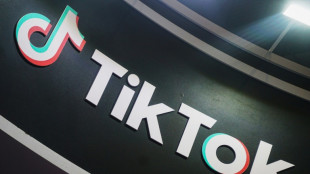
| JRI | -4.9% | 12.03 | $ | |
| CMSD | -0.72% | 23.76 | $ | |
| CMSC | -0.83% | 24.12 | $ | |
| GSK | -1.6% | 33.69 | $ | |
| SCS | -4.74% | 12.46 | $ | |
| NGG | -2.82% | 57.77 | $ | |
| BCC | -5.13% | 126.62 | $ | |
| BTI | -0.78% | 37 | $ | |
| RBGPF | 3.18% | 62.49 | $ | |
| RIO | -3.57% | 59.34 | $ | |
| BCE | -0.77% | 23.4 | $ | |
| BP | -1.89% | 28.54 | $ | |
| RYCEF | -1.78% | 7.3 | $ | |
| VOD | -2.62% | 8.41 | $ | |
| AZN | -3.93% | 64.64 | $ | |
| RELX | -1.49% | 46.33 | $ |

China's ride-hailing giant Didi to halt Hong Kong listing: report
China's leading ride-hailing company Didi Global has put plans to list in Hong Kong on hold, a report said Friday, as it struggles to appease Beijing over its handling of user data.
The company, once known as China's answer to Uber, has been enmeshed in red tape since a high-profile New York listing last June backfired after seemingly irking Beijing.
The IPO was quickly overshadowed by an investigation in China on cybersecurity grounds.
That prodded Didi to say it would begin the process of delisting from the New York stock exchange just months after its initial public offering and instead look to Hong Kong.
But those plans have also been scuppered, according to Bloomberg News, which said the Cyberspace Administration of China -- the top internet watchdog -- has told Didi execs their proposals to prevent security and data leaks are insufficient.
The CAC could make the outcome of the probe public in the coming weeks, Bloomberg reported on Friday.
Didi -- which reportedly ploughed ahead with its US listing despite Beijing's instructions -- has been hit especially hard by a state clampdown on tech companies perceived to have too great a hold over the purses and personal data of China's public.
It has been the dominant player in China's ride-hailing market since winning a costly turf war against US titan Uber in 2016.
Its app claims to have more than 15 million drivers and nearly 500 million users.
But days after the New York listing, its service was ordered off Chinese app stores.
Government agencies also launched inspections of its offices over "national security" fears, reportedly worried about sensitive data being leaked overseas.
After the controversy surrounding Didi, Beijing has tightened rules on overseas listings by Chinese firms.
Companies in industries where foreign investment is banned must now seek a waiver before an overseas debut.
Authorities have also introduced requirements that companies with at least one million users undergo a cybersecurity review before going public abroad.
Didi Global reported a $4.7 billion loss in the third quarter last year, after revenues plummeted due to Beijing's regulatory crackdown.
Y.Callens--JdB



